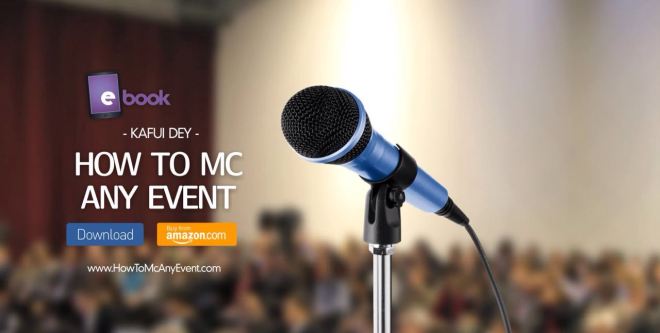- Remember your responsibilities: to bring order to the event, to energize the audience and to encourage the event to flow.
BEFORE THE DAY
- Meet the couple before the wedding day.
- Ask the couple or the event organizer to nominate one person to be your coordinator during the reception.
- Write notes of what transpires during the meeting.
- Email a record of what was discussed to the couple and event organizer.
- Get a draft program of the reception.
- Ask for the chairman’s profile if you are the one to do the introduction.
- Visit the reception venue before the big day to familiarize yourself with the layout of the space (location of the high table, entrances and exits).
THE NIGHT BEFORE
- Get your clothes, shoes, accessories, business cards and notes ready for the following day.
- Sleep early.
BEFORE THE RECEPTION
- Attend the religious service and observe everything.
- Head over to the reception venue in good time so you can prepare sufficiently before the reception begins.
- Meet with the members of your event team: the coordinator, venue manager, DJ, ushers, waiters, caterer and security.
- Call your team members by name instead of referring to them by their roles.
- Give a copy of the program to all your team members.
- Go over the program with the event coordinator.
- Be on friendly but professional terms with DJs.
- Establish a signal with the DJ so he automatically lowers the music when you have to talk.
- Welcome the early guests and thank them for attending.
- Pass out your business cards as you introduce yourself.
- Ensure that the ushers seat guests at their assigned places.
- Get the waiters to serve guests with cold drinks before the bridal party arrives.
- Make sure the people responsible for the opening prayer and introducing the chairman are present.
- Check from the DJ whether the couple has selected a particular song to herald their entrance.
DURING THE RECEPTION
- Be at least 2 steps ahead of the program so you can improvise when unexpected changes occur.
- Ask the guests to stand up and clap to welcome the couple when they make their entrance.
- Make sure you mention the person’s place of worship if the opening prayer is by a religious official.
- Introduce the chairman briefly using the P- E-N formula to inform guests of the person’s credentials (Profession-Experience-Name).
- Politely tell the DJ to change the music or lower the volume if the occasion demands it.
- Read out the names of the champagne popping team 2 or 3 times before inviting them to do their work.
- Remember whose day it is: the couple’s. You are not the star of the event.
- Make positive comments about the beautiful bride and her handsome husband.
- Make frequent announcements pointing out the location of the gift table and encouraging guests to give their presents to the people at the table.
- Make sure the caterer is ready before you invite guests to eat.
- Invite the bridal party to serve themselves first.
- Invite those closest to the buffet table to serve themselves and then spread out towards those further and further from the buffet table.
- Make sure guests have their glasses before the champagne bottles are popped open.
- Tell the person who opens the first bottle of champagne to serve the bridal party.
- Encourage guests to clap after the proposal of toast and the response to the toast.
- Ask the bride if she has a special song for the couple’s first dance and check with the DJ if it’s available.
- Invite the guests to join in the dancing after the first dance is over.
- Be prepared to persuade someone to dance with you if guests are shy about joining the couple to dance.
- Make several announcements for all the single ladies to get ready for the bouquet toss.
- Make the bouquet toss dramatic.
- Ask for a Vote of Thanks only if you have to end the reception.
- End the reception by thanking the audience for accepting the invitation.
AFTER THE RECEPTION
- Join the bridal party when they line up to greet departing guests – if you didn’t handle the reception well, this is no time to slink away home.
- Pass out your business cards once again.
P.S. Want more tips? Go to www.HowToMCanyEvent.com to get my eBook
